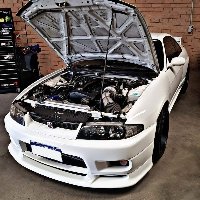Car Performs Better After 2-3 Min Idle Warmup
Announcements
-
Similar Content
-
Latest Posts
-
By OakvilleGTR · Posted
Good morning all, Bit of a random question but figured I’d finally throw it out after wondering for a long while. Before I start, I'm hoping to do this purely out of personal preference. I think it would look better at night, and don't mind at all spending a few hours and dollars to get it done. I've copied this from a non-Skyline specific forum, so I apologize for the explanation of our headlight switch setup that we all know. Here we go: Zero lights (switch off) Parking lights (switch position 1) being a rectangular marker on the outside of the housing, my low beam being the projector in the centre (position 2), and a high beam triggered by my turn signal stalk. Most North American cars I’ve owned of this era have power to the amber corner (turning indicator) light as part of the first switch (parking lights). I’d love to have these amber corners receive power when the headlights and parking lights are on (headlight switch), yet still blink when using the turn signal which is of course a separate switch. Hopefully I’ve explained my question correctly. Is anyone aware of a way in which I might be able to achieve this? Thanks in advance -
My heads are cathedral port! It's likely possible, but I don't want to add any extra moving parts (I know they don't move) between the heads, manifolds, etc. It will also affect how injectors/fuel rails etc sit and I don't really know if it would change how the FAST manifold goes/sits/fits. I have the LS6 steam pipes already as I have a very late LS1 block so it should be fine. I couldn't find anyone who had ever actually used one for this purpose, it seems 100% of people grind the water pump. The thermal spacers are 12mm and are half way to the cost of the newer water pump anyhow... so if it comes to that I suppose I'd rather buy a new pump. The bearing in the pump I do have is a little.. clunky, but it hasn't done that much time and I never noticed it when the car was together in the past few years, so..
-
The bushing has failed, not all that uncommon for a car of this age. Any mechanic should be able to push in a new bushing for you, or you can probably buy the entire lower control arm, complete with bushes.
-
Could you not use "thermal" spacers to give the clearance, like the ones I used between the blower and head? That raised the manifold height by around 10-15mm Albeit the ones I used were for cathedral ports, but I assume they have similar for rectangular ports????
-
By Red Sky II · Posted
Thanks Paul I reached out to Autotainment but they no longer work on JDM cars as the guy who used to do the work moved on and is no longer doing that kind of work. I am talking with Level Up Audio though.
-











Recommended Posts
Create an account or sign in to comment
You need to be a member in order to leave a comment
Create an account
Sign up for a new account in our community. It's easy!
Register a new accountSign in
Already have an account? Sign in here.
Sign In Now